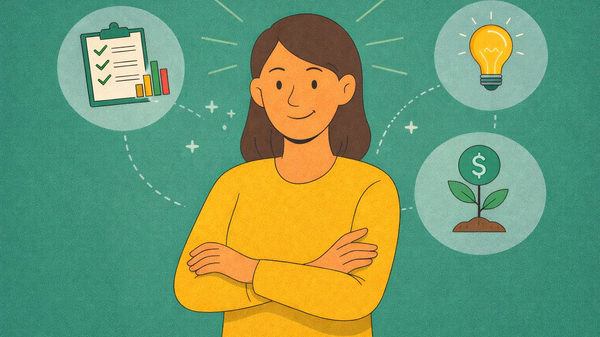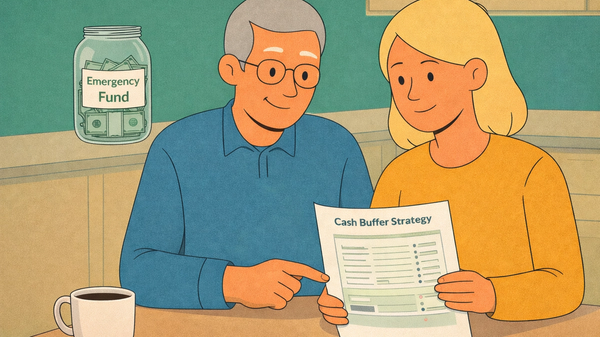Highlights:
- What you earn in the 5 years before starting a family can dramatically affect your Canada Pension Plan
- Have guilt-free time off with your little one, without worrying how it’ll affect your pension
- Simple ways to maximize what you’ll earn in retirement!
Parents, we’ve got good news:
There are new ways to get more money in retirement!
This helps take a load off so you can be present with your child.
However, the Enhanced Canada Pension Plan (E-CPP) is a double-edged sword:
In some cases it’s tricker to be eligible, while others can get more.
If you’re planning on starting a family, this will be especially useful for maximizing your CPP benefits.
Keep reading for the best ways to get the most money for your situation!
The scoop on CPP
There are a few factors that determine how much you’ll receive from the Canada Pension Plan (CPP), one of them being how much you contributed during your working years.
Any parent can tell you that raising a young child is a full-time job itself - so you might not be able to work as much as you used to, or work at all.
Since you’re making less, you’re contributing less to your pension, and lowering your lifetime earnings (and this is important because your total earnings influence how much you’ll get from the CPP).
Thankfully, there are a few ways for primary caregivers to skirt around these low-income parenting years so they don’t make a dent in your CPP payouts!
2 parts of the CPP help with this:
Base CPP: You can ‘ignore’ years where you had low income because of raising a child (the “drop out” method)
Enhanced CPP: You can ‘pretend’ you earned money during those low-income years (the “drop-in” method). This is a ‘top up’ to the base CPP.
This can be done from the time your child is born, up until they turn 7 years old.
The purpose of either strategy is to offset those low-income years so you get a higher pension!
How much can you expect to get from Enhanced CPP?
The ‘full power’ of E-CPP will be felt years down the road after someone has paid into it for 40 years.
Since you’re already well into your career, the question is: How does this help you?
This free tool and short video series show how E-CPP will benefit you based on your age!
Let’s see how CPP can help parents!
If you don’t work after having a baby:
Jessica has been working full-time and contributing to CPP for years.
After having her son Paxton, she decided to be a stay-at-home mom until he was 7. Since she wasn’t working, she didn’t earn much during those years.
When she turns 65, she’ll ‘drop out’ those 7 low-income years from her CPP retirement calculation, so her lifetime average earnings were higher - and so is her pension!
If you work part-time after having a baby:
Before having their daughter Olivia, Josh spent the last 5 years working as a graphic designer earning $55,000 annually.
As the primary caregiver, Josh worked part-time earning $20,000 a year until Olivia turned 7.
So when it comes time to calculate his pension, Enhanced CPP will ‘pretend’ he kept earning $55,000, increasing his lifetime earnings and pension!
Cool, right?
However, there’s one sticking point with Enhanced CPP…
What if you didn’t earn much before having a baby?
That’s where these calculations get thrown through a loop.
It’s great if your income was high in the 5 years before your child’s birth…
But if your income was low in the 5 years before having a child, not so much.
That’s because with E-CPP, the ‘pretend’ income used to calculate your pension will be based on your low income.
How to maximize your CPP benefits
Here are a few ways to set yourself up to make the most out of your pension:
Increase your income before childbirth
This will boost your ‘pretend’ income and overall lifetime earnings.
Business owners in particular have more say in how much they can make, so if you pay into CPP, plan to increase your income in the 5 years leading up to having a child.
By front-loading a higher salary before having a child, you’ll raise your ‘pretend’ salary to offset your low-earning child-rearing years.
Work part-time while your child is young
This increases your lifetime earnings and also continues to contribute to CPP. With remote work options becoming more common, you might be able to find flexible work you can do from home.
If you’re a business owner, you might want to continue paying yourself a salary to prevent earning gaps.
If your business is incorporated, you can also take dividends - it won’t contribute to CPP, but money is still money!
Work with an expert
A financial planner and/or an accountant can help you find the best strategies for your situation.
For example, Jason Yee is a financial planner who specializes in helping people get the most out of the Canadian Pension Plan.
Follow him on LinkedIn to learn more about CPP in a few posts than you ever have before!
How else can you have a bougie retirement?
Invest, baby!
Any pension is great, but nothing beats the added security of having your own ‘self-funded pension’.
If you’re anything like us, you want to do everything you can to set yourself up to enjoy all the things retirement has to offer:
☀️ Spending the winters somewhere sunny and warm
⛳ Enjoying hobbies (even expensive ones)
🎁 Spoiling your grandkids
Passiv makes investing easy. Save time, automatically balance your portfolio, and track your progress!


